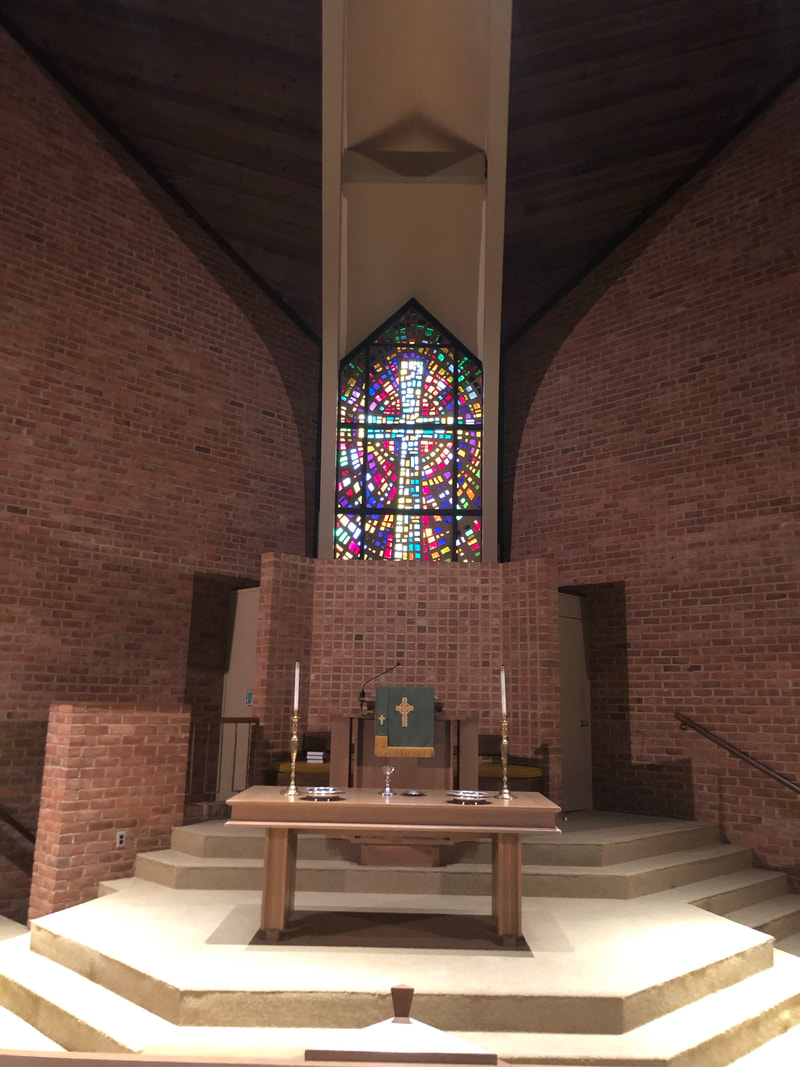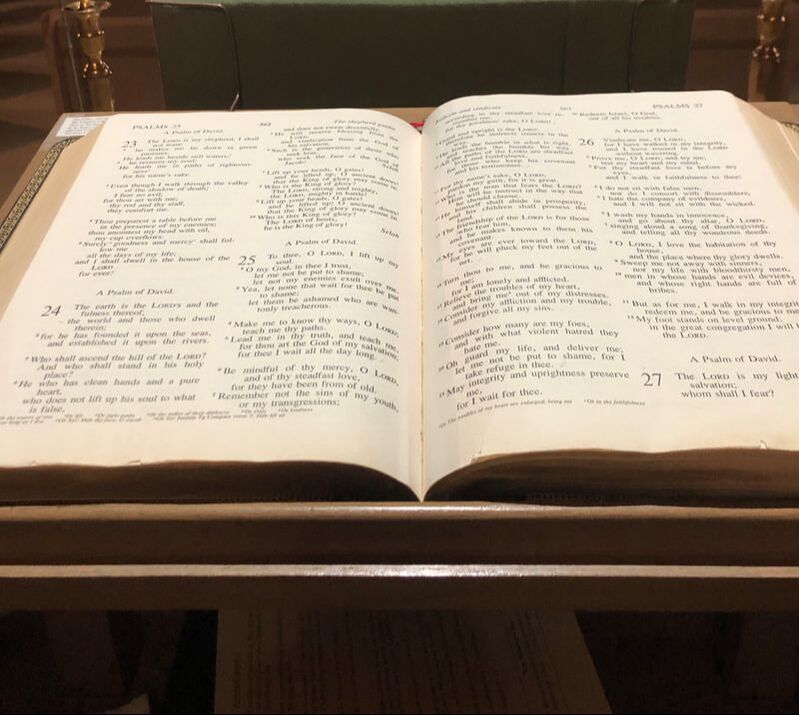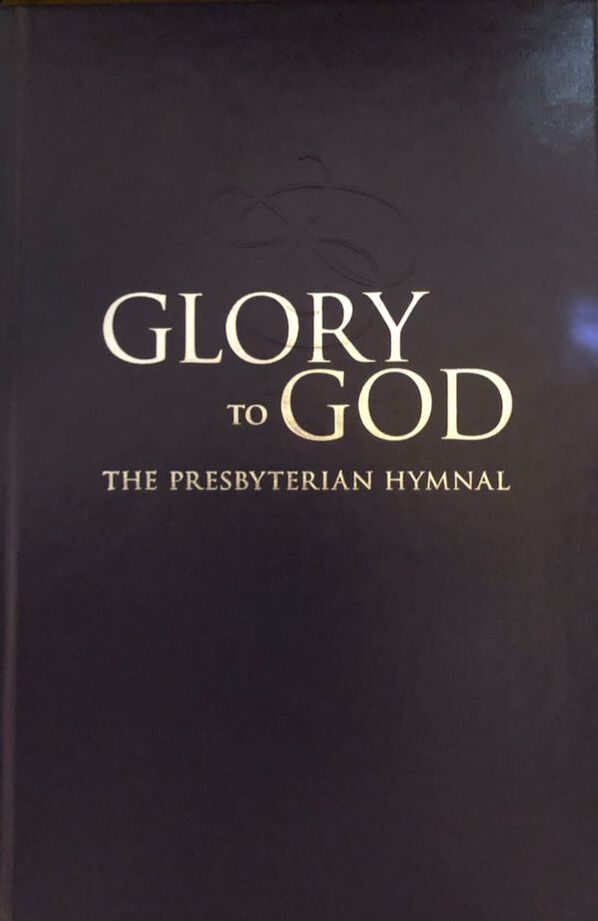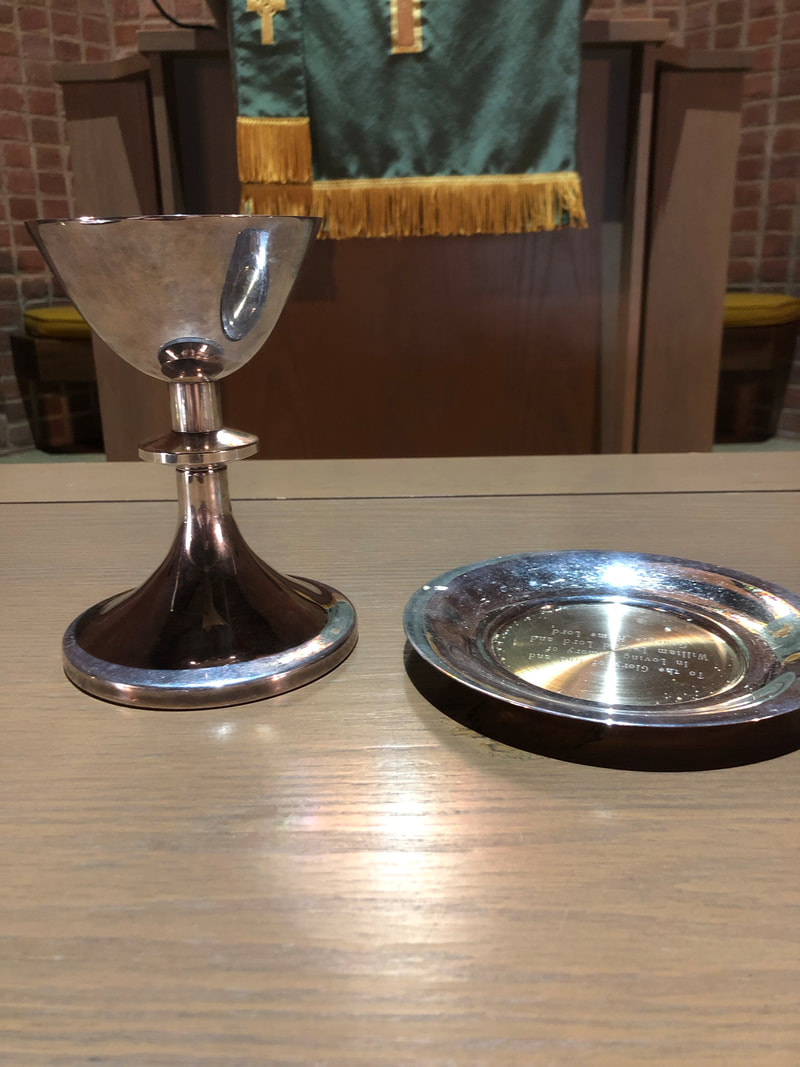Order of Worship for the Lord's day
|
Call to worship - The people are called to worship God. Words from scripture are spoken or sung to proclaim who God is and what God has done. We are thus reminded that our worship centers in God and not in ourselves.
Opening prayer – An opening prayer of adoration is said. Adoration is the keynote of all true worship, of the creature before the Creator, of the redeemed before the Redeemer. Hymn – The people sing praise to God in a hymn, psalm, or spiritual, which tells of God’s greatness, majesty, love, and goodness. Praise is the joyful response to the incomparable gift of God in Jesus Christ, and so is dominant in Christian worship. Prayer of Confession – In words of scripture the people are called to confess the reality of sin in personal and common life. Claiming the promises of God sealed in our baptism, we humbly confess our sin. . A period of silence is observed following the confession of sin. Having confessed our sin, we remember the promises of God’s redemption, and the claims God has on all human life. The assurance of God’s forgiving grace is declared in the name of Jesus Christ. We accept God’s forgiveness, confident that in dying to sin, God raises us to new life The passing of the peace – Having been reconciled to God in Jesus Christ, the people are invited to share signs of reconciliation and the peace of Christ. First Scripture Reading – There are readings from both the Old and the New Testament to ensure that the unity and completeness of God’s revelation are proclaimed. The scripture readings are selected with care. Their selection are guided by the seasons of the liturgical calendar, pastoral concerns, world events and conditions, and the church’s mission. Attention is given to ensure that over a period of time, worshipers will be provided all of the many and varied themes and emphases of the scripture. Hymn – A hymn or other song is sung. It is usually related to the scripture readings of the day. A Time with Children - children are invited to hear a lesson based on the scripture reading. New Testament Reading - the sermon is usually based on this reading. Sermon – When the Bible has been read, its message is proclaimed in a sermon or other form of exposition of God’s Word. The God who speaks in scripture speaks to us now. The God who acted in biblical history acts today. Through the Holy Spirit, Christ is present in the sermon, offering grace and calling for obedience. Preaching presents the gospel with simplicity and clarity. A prayer, acclamation, or ascription of praise may conclude the sermon. The Word may also be proclaimed through music and other art forms faithful to the gospel. The proclamation of God’s Word in scripture and sermon invites a response of faith. We respond in song, affirmation of faith, prayer, and offering. Affirmation of Faith – The people respond to the proclamation of the Word by affirming the faith. The faith of the church both shapes our lives and expresses the hope and expectancy that are a part of the Christian life. From early in the church’s life, an affirmation of faith has been central in corporate worship. Candidates for Baptism gave assent to the faith in the words of the Creed, and upon their baptism were admitted to the Eucharist. As those who are baptized, whenever we say the creed we reaffirm the profession of faith made in our baptism. Prayers of the people - In response to the Word, prayers are offered. In these prayers, we acknowledge God’s presence in the world and in daily life. Across the ages the church in its worship has prayed for the church universal, the world, all in authority, and those in distress or need. At no other time in its worship is the community of faith more conscious of the needs of the life of the world. We pray for the world because God loves it. God created the world and cares for it. God sent Jesus, who died for it. God is working to lead the world toward the future God has for it. To abide in God’s love is to share God’s concern for the world. Our prayers should therefore be as wide as God’s love and as specific as God’s tender compassion for the least ones among us. Offering - In response to God’s love in Jesus Christ we offer God our lives, our gifts, our abilities, and our material goods, for God’s service. The tithes and offerings are gathered and received with prayer. Eucharist (happens the first Sunday of each month) - The Eucharist has given witness to God’s redemptive acts each Lord’s Day, giving Christian worship its distinctive shape. In this sacrament, the bread and wine, the words and actions, make the promises of God visible and concrete. The Word proclaimed in scripture and sermon is confirmed, for all that the life, death, and resurrection of Christ means is focused in the Sacrament. Our tradition is that we hold the bread and take it together as one body and when the cup is served you may partake when ready Hymn - A hymn or other song is sung. It is usually related to the liturgy of the day. Charge and Benediction - The charge renews God’s call to us to engage in obedient and grateful ministry as God’s agents to heal life’s brokenness. By the power of the Spirit, we are to be in life and ministry what Christ has redeemed us to be. |




